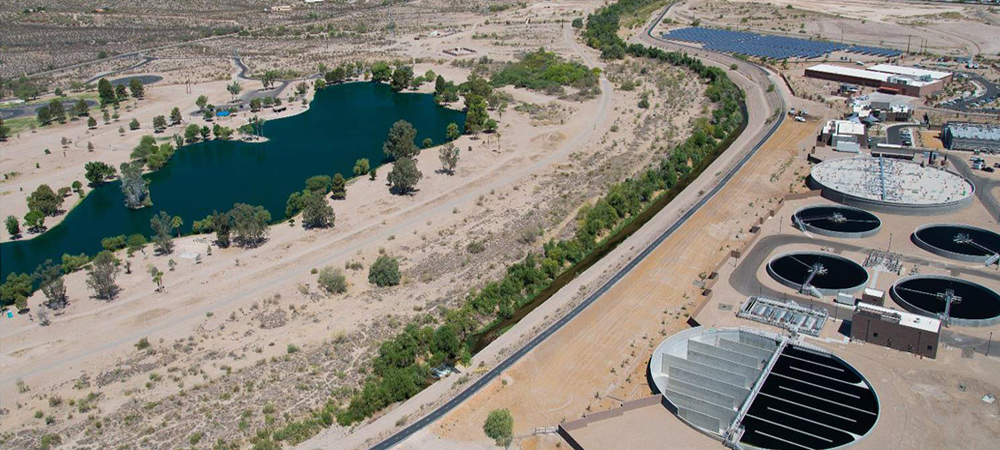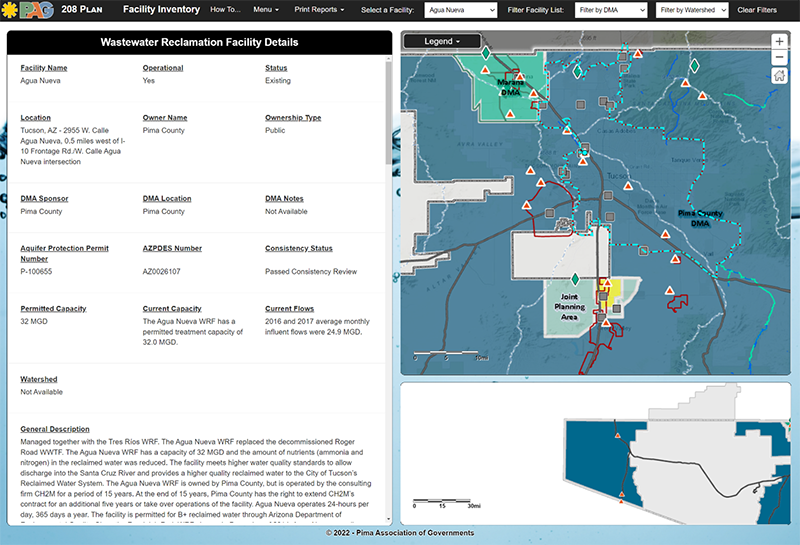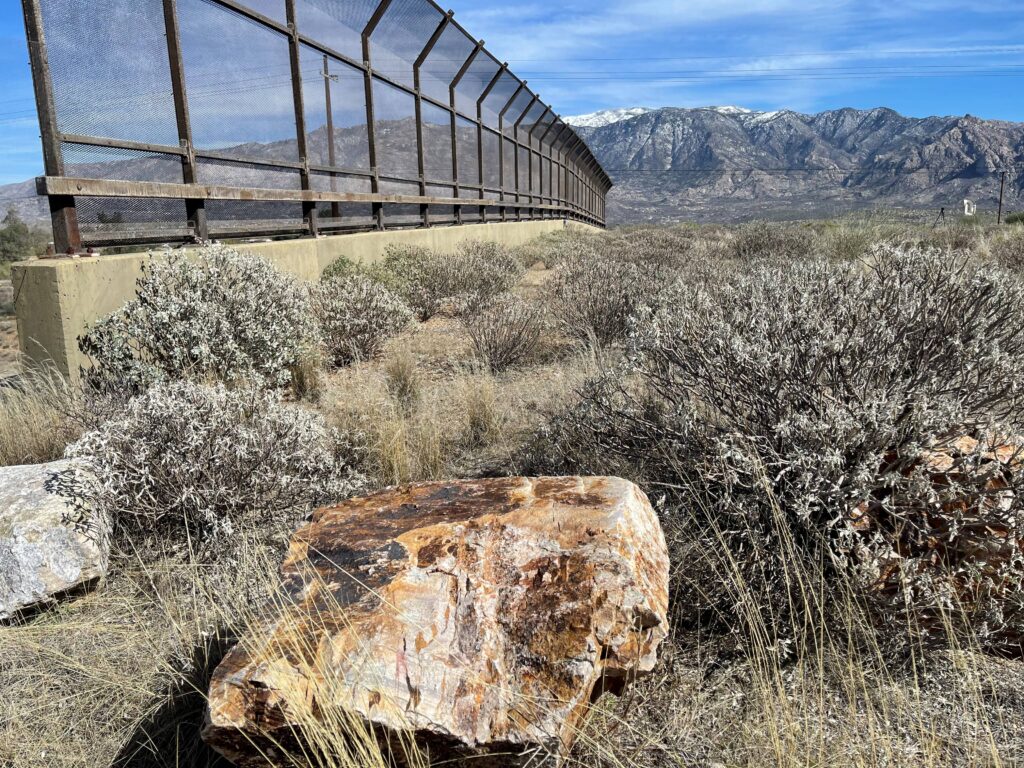
Under its role as the designated water quality management agency, Pima Association of Governments conducts water quality permit reviews, or consistency reviews, for a regional approach to planning for the treatment of wastewater in Pima County.
Areawide coordination has resulted in reliable wastewater reclamation facilities to generate clean water in the region. Regional policies lead to large public facilities that recycle water into valuable resources including reclaimed and effluent water for irrigation, recharged water and healthy Santa Cruz River flows.
Four stretches of the Santa Cruz River are dependent on effluent or reclaimed water and can be seen via The Chuck Huckelberry Loop: the two Santa Cruz River Heritage Project sites near Irvington Road and 22nd Street/Starr Pass Boulevard and the two stretches of river north of the Agua Nueva Wastewater Reclamation Facility (WRF) near West El Camino Del Cerro and north of Tres Rios WRF near Ina Road.
Pima County received approval to permanently allot water to sustain river flows between the WRF sites through the “Conservation Effluent Pool.” This effluent water allocation will help prevent summer season dry spots in the river and support endangered Gila topminnow and native plants that have rebounded in recent years. Sweetwater wetlands is another reclaimed water site near the Santa Cruz River with urban wildlife habitat, birding opportunities and educational signage.
PAG coordinates regional wastewater planning with the region’s three designated management agencies (DMAs) responsible for ensuring that wastewater service is provided in their management areas. To find out which of the following wastewater planning areas you are in, please view PAG’s interactive wastewater facility map.

- Pima County Regional Wastewater Reclamation Department
- On-site wastewater treatment facilities within Pima County
- Sahuarita Wastewater Department
- Marana Water
Under state and federal regulations, all new or significantly changed wastewater treatment facilities must align with PAG’s Areawide Water Quality Management Plan (208 Plan) before permits may be issued. The 208 Plan provides policy and direction for wastewater management in Pima County.
PAG ensures practices align with local policies and builds regional consensus during permit reviews to encourage guiding principles such as multi-benefit projects.
The 208 Plan outlines the plan amendment and coordination processes for relevant new or changing water quality permits. Questions from waste discharging entities regarding how to start the permit review process should be directed to PAG.
Please help us to protect our valuable wastewater reclamation resources. Discard grease and wipes in the trash to prevent clogs. Since wastewater reclamation facilities cannot treat all chemicals, you can keep our water clean by using biodegradable household and personal care products and never disposing of medication down the toilet or drain. Visit the DMA websites above to learn more, from information about sewer connections and per-and polyfluoroalkyl substances (PFAS) to bird watching opportunities and grease recycling events. PFAS are long-lasting chemicals with compounds that break down slowly over time, according to the U.S. Environmental Protection Agency.

